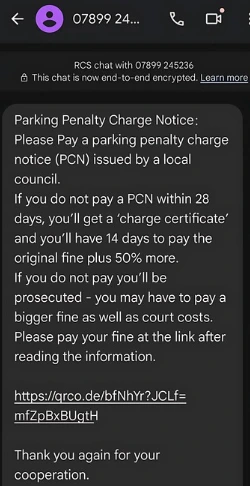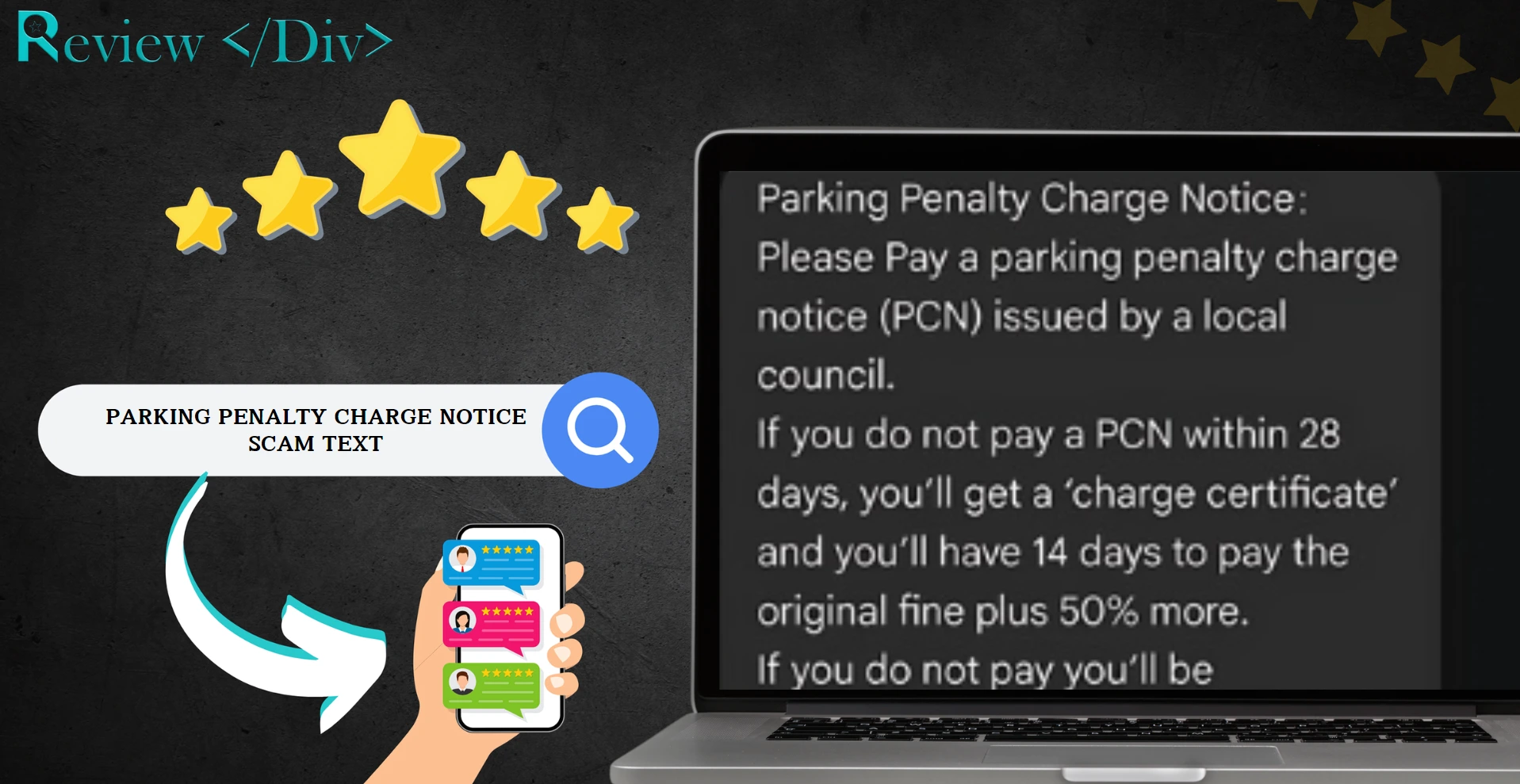In the past few weeks, there has been a rise in scam text messages targeting drivers across the UK. These messages falsely claim that recipients owe payments for parking fines, referred to as Penalty Charge Notices (PCNs).
The texts seem to come from local council authorities and trick people into providing personal and financial details. As local councils continue to warn the public about these scams, it’s important to understand how these frauds work and how to avoid becoming victims.
Scam Overview
This scam revolves around text messages that falsely inform people about unpaid parking fines. The message contains a link that directs users to a fake website, designed to look like an official council payment site.

The messages use official logos and urgent language that pressure people to act fast and make a payment without checking if the message is real.
The Message Includes:
Parking Penalty Charge Notice: Please pay a parking penalty charge notice (PCN) issued by a local council. If you do not pay a PCN within 28 days, you’ll get a ‘charge certificate’ and you’ll have 14 days to pay the original fine plus 50% more.
Several local councils, including Erewash, Sheffield, Sefton, and Wandsworth, have warned citizens about these scams. Erewash Borough Council made it clear that they never send texts asking for payments for PCNs.
They urge anyone receiving such texts to report them to their mobile provider by forwarding the message to 7726, which spells “SPAM.”
How Does Parking Penalty Charge Notice Text Scam Works?
This scam works by sending fake text messages that seem to be from local councils, claiming that the recipient has an unpaid parking fine. The messages threaten additional charges or legal action if the fine isn’t paid right away.
They include a link that leads to a fake website, which looks like an official council payment portal. Once on the site, victims are asked to provide personal information, such as credit card details and vehicle registration numbers.
Scammers use this data to commit identity theft or make unauthorized transactions. The messages create a sense of urgency, pressuring people to act quickly without verifying if the message is real. This makes it easy for victims to fall for the scam without taking time to check its authenticity.
How to Protect Yourself From These Scams?
Here are some steps that will help protect you from these scams and prevent you from becoming a victim.
Verify the Source: If you receive a message about a parking fine, don’t click on any links. Instead, contact your local council directly using official contact details from their website to check if the fine is real.
Report Suspicious Messages: If a message seems suspicious, don’t respond to it. Forward it to your mobile provider by sending it to 7726. This helps mobile providers detect and block scam messages.
Use Official Payment Methods: Only make payments through official council websites or authorized portals. Avoid making payments through links in text messages or emails.
Check Your Financial Activity: Regularly review your bank statements for unauthorized transactions. If you think you’ve been scammed, contact your bank to report the issue and get help.
Report the Scam: If you’ve been targeted or accidentally provided personal information to scammers, report the incident to Action Fraud, the UK’s fraud and cybercrime reporting center. You can call them at 0300 123 2040 or visit their website.
Jason Thomas is a Computer Science student specializing in AI & ML, dedicated to safeguarding individuals from online threats. Passionate about exposing internet scams, Jason spends his free time identifying and reviewing various fraudulent activities and unethical materials. With a unique blend of theoretical knowledge and practical application, he is a valuable contributor to the fight against online fraud. His commitment to technology and programming fuels his mission to protect people from scams and enhance internet safety for everyone.







